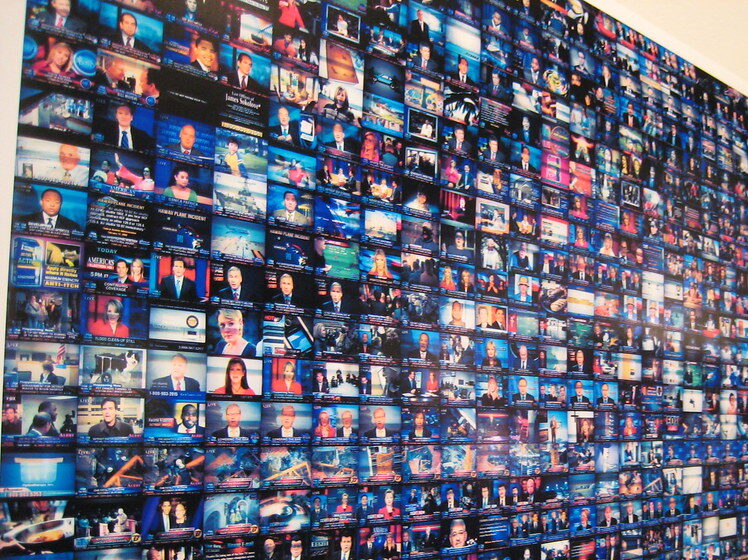Key Takeaways
- Fox News repeats false claims without fact checks.
- Unchecked coverage can radicalize viewers quickly.
- The UK’s impartiality rules offer a clear example.
- Americans need similar fairness standards to curb division.
Is Media Bias Fueling America’s Next Crisis?
In 2021, a violent mob attacked the US Capitol. Many blamed one source: Fox News. They say viewers watched biased reports and believed lies. Then, on January 6, they marched on democracy itself. Today, we face a new threat. Once again, Fox News repeats falsehoods about immigrants and crime. As a result, people grow angry and fearful. Clearly, media bias matters more than ever.
How Media Bias Shapes Public Fear
Fox News hosts once called stolen election claims “nuts” behind the scenes. Yet they kept telling viewers the opposite. Similarly, today they air unverified stories about ICE agents. For example, a governor claimed no American was ever detained by ICE. Fox News ran that segment without correction. In reality, ICE officers have arrested over 170 US citizens illegally. Even worse, their footage showed a masked agent slamming a woman to the ground. A Fox anchor cheered that violence.
Meanwhile, viewers only saw one side. They assumed ICE faced constant attacks. They heard no mention of excessive force. As a result, they demand tougher laws and secret police. In fact, political leaders now talk about “quick reaction forces” to control protests. This plan echoes tactics used by dictators. Yet few seem alarmed. Sadly, media bias has blurred the line between safety and oppression.
Why Media Bias Matters Now
First, biased news deepens our divisions. Studies show Fox News viewers rarely seek other sources. They remain within a filter bubble. Consequently, they believe whatever they hear. They think critics hate America. Critics, in turn, see Fox viewers as extremists. This cycle creates mutual distrust and anger.
Second, unchecked propaganda can spur violence. On January 6, extremists cited Fox reports to justify their actions. Later, network leaders admitted the election claims were false. They even called them “ludicrous” off-air. However, on-camera they fed lies to millions. The result was a deadly riot. We cannot ignore that link.
Lessons from UK Impartiality Rules
Across the Atlantic, British broadcasters follow strict rules. Ofcom, their media regulator, enforces impartiality and accuracy standards. Stations must present multiple viewpoints on big issues. They must correct errors quickly. They must offer timely replies to anyone accused of wrongdoing.
In the UK, Fox News once tried to enter the market. It could not meet these rules. Ultimately, the network pulled out. This failure shows that balanced reporting is not impossible. It simply requires legal safeguards.
A Call for Media Fairness in the US
The United States used to have similar rules under the Fairness Doctrine. That policy ended in 1987. Since then, news outlets have grown more partisan. Polls confirm that Americans feel misled by the media. We need to bring back a version of those rules.
A new law could set basic standards:
• Require networks to air opposing views on major political topics.
• Demand timely corrections of significant errors.
• Give individuals and groups a right to reply when wrongly accused.
Such rules would not infringe on free speech. They would only ensure that broadcasters treat viewers fairly. After all, democracy depends on an informed public. When people trust their news, they can debate, vote, and protest peacefully.
What You Can Do
Ask your representatives to support media fairness bills. Write letters or make calls. Share balanced news sources with friends and family. Encourage debate based on facts, not fear. Above all, seek multiple viewpoints before drawing conclusions.
By demanding these changes, we protect our democracy. We reduce hatred and division. We prevent extremists from using lies to stage real violence. In short, we stop media bias from fueling America’s next crisis.
Frequently Asked Questions
What is media bias and why does it matter?
Media bias occurs when news outlets slant their coverage to favor one side. It matters because it shapes beliefs, fuels anger, and can lead to real-world harm.
How do the UK’s impartiality rules work?
British broadcasters must present all major views on public issues. They must correct errors quickly and offer a right of reply to those accused unfairly.
Could similar rules pass in the US?
Yes. Congress could revive a modern Fairness Doctrine. It would require minimal standards that protect both free speech and fair coverage.
How can I protect myself from media bias?
First, follow multiple news outlets across the spectrum. Second, check facts before sharing stories. Third, discuss important issues with people who hold different views.
